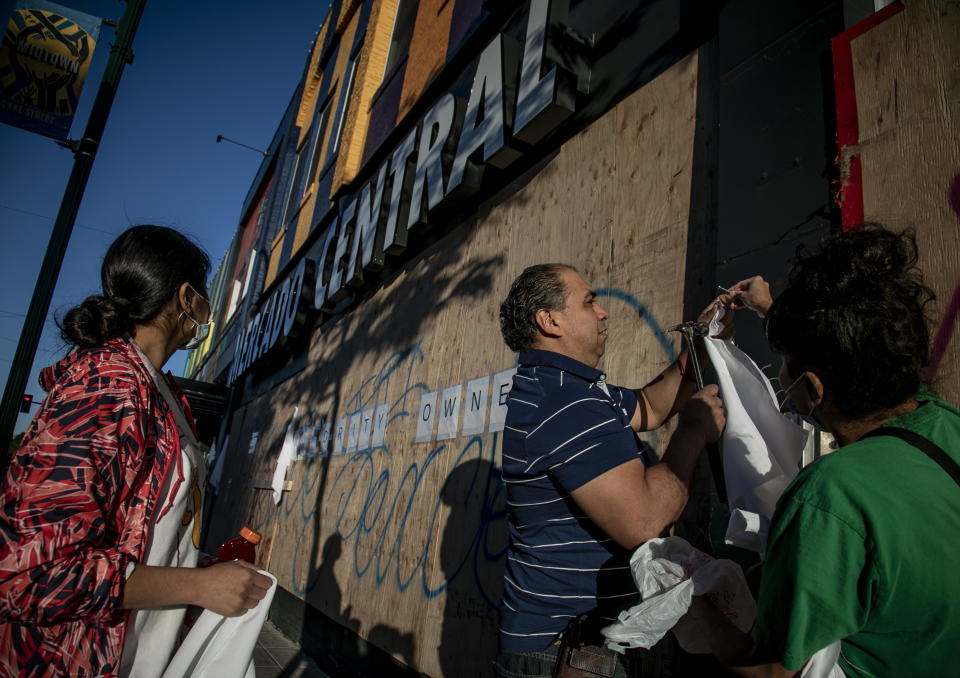Coronavirus and civil unrest: 'Strip-mining of Main Street America'
First came the novel coronavirus, which has taken 386,000 lives and counting, with nearly 30% of the deaths occurring in the U.S. alone. In addition to a global health crisis, COVID-19 has painted the worst picture for workers since the Great Depression, and a new Congressional Budget Office report projects the U.S. economy will shrink by $8 trillion through 2030. Concurrently, the country is smoldering in civil unrest, a direct response to the killings of black Americans at the hands of police officers.
Over the weekend, what started as peaceful protests escalated into violent mayhem and even more police brutality. Looters have ravaged stores and mayors have implemented curfews, creating additional hurdles for small business owners who had just begun reopening their doors.
“It’s a brutal picture out there with a lot of confusion. Overall, when you look at the typical small business, let's take a restaurant, for example, they're used to operating on 4 to 7% margins in good times. One thing I think is a misconception about the reopening is this assumption that businesses can stay half open or 75% open. But when you're operating at 4% to 7% margins, you know, half open is losing money. It's not open at all,” said Fivestars CEO Victor Ho in an interview with Yahoo Finance’s On the Move.
The U.S. Senate passed revisions to the popular Paycheck Protection Program (PPP) on Wednesday, giving small business owners more flexibility to use the loans specifically designated for payroll. The timeline for employers to use the funds — in order for the loans to be forgiven — has been extended from eight to 24 weeks. This offers some much-needed relief amid an unprecedentedly challenging environment.
Still, the underlying business model of small businesses was barely sustainable even prior to the pandemic. Eateries, in particular, have been siphoning off more of its revenue to food delivery services like Grubhub (GRUB), Postmates, Doordash and Uber Eats (UBER) in order to stay afloat at all.

“We're seeing the revenue that small businesses do have when we talk about recovery being increasingly taken over through things like delivery networks,” said Ho.
Fivestars, a payment, loyalty and marketing platform, works with 14,000 businesses across the country, ranging from retail storefronts to restaurants. As protests erupted across Minnesota last week over the killing of George Floyd, small businesses experienced a significant hit on sales, according to the firm’s Small Business Reopen Report. During the week of May 25, Minnesota saw a 13% decrease in overall sales, compared to the week prior, the most dramatic decline of all 50 states.
“One thing we've seen is just the strip-mining of Main Street America, where these large corporations have gone into different cities. Main Street gets replaced by Walmart or something like that and basically 70 cents on the dollar then gets extracted from those communities out somewhere else,” said Ho.
“So you spend $10 there. Thirty percent of that just goes away completely. And so... things may be recovering, and we certainly have optimism there. It kind of goes back to the idea that if they're living off 4% to 7% margins and they're giving 30% of their revenue as a tax right off the top, there's going to be a whole lot more out of business waiting for us when all this settles down,” he said.
Melody Hahm is Yahoo Finance’s West Coast correspondent, covering entrepreneurship, technology and culture. Follow her on Twitter @melodyhahm.
Read more:

 money
money 